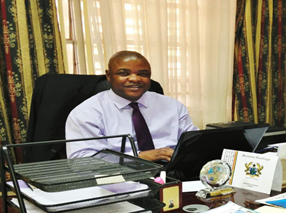In his doctoral dissertation, Prof. Tom Kaydor, Jr. advocates for a strategic focus by the African Union (AU) on enhancing agricultural productivity, value addition, and ensuring safe drinking water to combat severe hunger, malnutrition, and poverty in Africa. The case of Liberia, the continent’s first independent republic, exemplifies the urgency of this mission, with 5.2 million citizens grappling with malnutrition despite 177 years of independence. Recent advancements in gathering reliable agricultural data, as demonstrated by Liberia’s first digital Agriculture Census in 2024, highlight the importance of accurate information for public policy and sustainable development. The agricultural sector, which is the primary livelihood for around 40% of Liberia’s populace and contributes approximately 36% to its Gross Domestic Product (GDP), is pivotal in addressing food security challenges, given that nearly 40% of the population experiences malnutrition.
A transformative initiative, the 50×2030 Initiative, has been launched to close the agricultural data gap through a multi-agency partnership involving the World Bank, FAO, and the International Fund for Agricultural Development (IFAD). This initiative aims to enhance national agricultural data systems in 50 countries by 2030, crucial for monitoring agricultural productivity and informing public policies aligned with international frameworks, such as the AU’s Agenda 2063 and the Comprehensive Africa Agriculture Development Programme (CAADP) established in 2003. The CAADP underscores the necessity of member states investing at least 10% of their national budgets in agricultural development to achieve growth of over 6% annually by 2025—an essential target for improving food security across Africa.
Despite the significant role of agriculture in Liberia’s economy, the government’s 2024 budget proposal allocates a mere US$8.83 million, approximately 1.2% of the national budget, to the agriculture sector—substantially below the AU’s 10% target. While some policymakers argue that multiple stakeholders contribute to agriculture in Liberia and that the AU’s requirement should not solely apply to the Ministry of Agriculture, Kaydor emphasizes that the government must invest adequately to fulfill these international commitments. As Liberia prepares its 2025 National Budget, Kaydor urges the government, under President Joseph Nyuma Boakai, to recognize agriculture as a national development priority, especially since Boakai has a strong background in agriculture.
The AU’s requirement holds immense significance for Liberia as the country strives to enhance its agricultural capacity and promote food security. The CLADP, another initiative emphasizing agriculture-led economic growth in Africa, supports nations in tackling poverty and malnutrition while improving agricultural productivity. This initiative also aligns with strategies to build resilience against climate change and improve disaster preparedness through social safety nets and early warning systems. Given that Liberia’s agricultural sector is facing significant investments from donors, it is crucial for the government to match these contributions with local budget allocations that reflect a commitment to sustainable agricultural growth.
To elevate its agricultural sector and achieve the AU’s outlined goals, Liberia needs a clear and ambitious national framework, ideally reflected in the forthcoming National Agricultural Development Plan (NADP). Although the plan has received praise, it currently falls short of comprehensively addressing all agricultural sectors, such as sugarcane production. With an estimated requirement of US$717 million over six years to meet agricultural targets, Kaydor contends that government allocation for agriculture must meet, if not exceed, the 10% threshold recommended by the AU. This urgency to implement key budgetary reforms is critical at a time when external funding could be reassessed or diminished.
Ultimately, the impetus for transforming Liberia’s agricultural landscape lies in the government’s recognition of the sector’s potential for driving economic growth and alleviating malnutrition. Agriculture remains the backbone of many citizens’ livelihoods; thus, a robust investment plan must roll out without excuses. Prof. Kaydor’s research underscores the interconnectedness of agricultural development with broader issues of poverty, malnutrition, and food security, making it a focal point that deserves immediate governance actions. The successful implementation of these strategies will not only enhance Liberia’s agricultural outputs but also create a sustainable model for addressing pervasive hunger and economic challenges facing millions across the African continent.


